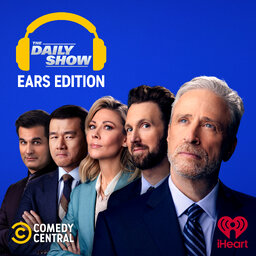Willie O'Ree, the first Black hockey player in the NHL, reflects on how he thrived in the sport despite a severe eye injury and racist backlash and talks about inspiring young athletes. And Pro hockey star P.K. Subban discusses his path from immigrant's son to captain of an NHL All-Star team.
 The Daily Show: Ears Edition
The Daily Show: Ears Edition


